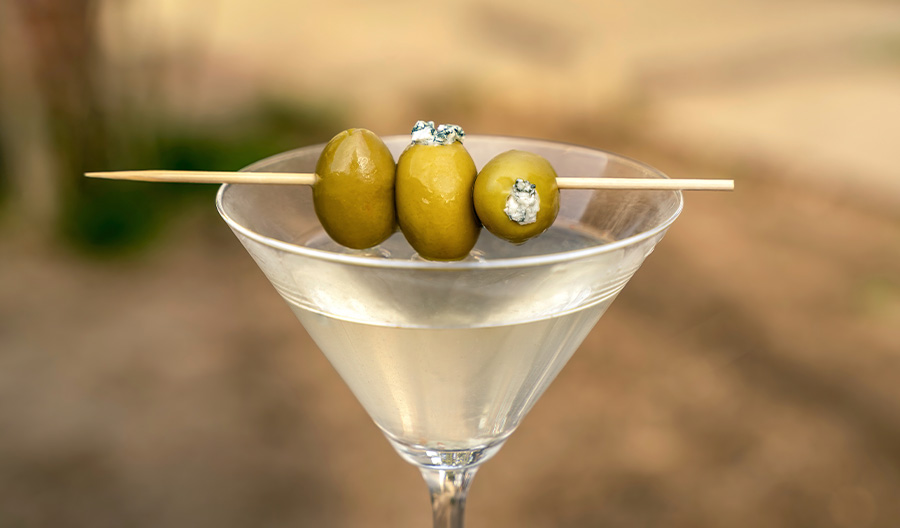The iconic martini has stood the test of time for a few reasons. It’s instantly recognizable—everyone knows the namesake V-shaped glass—and unmistakably bracing, crisp and versatile. The cocktail is a pristine canvas to customize with varying amounts of vermouth (dry, wet, 50/50?), garnishes (olive, twist, onion?) and flavorings from olive brine to dashes of liqueurs. With an always-expanding constellation of variations, it’s no wonder that the martini is one of the most popular drinks around the world.
While martinis can be made with a base of vodka or gin, we prefer the classic recipe with gin. Since the botanical spirit imparts so much character into the cocktail, it pays to choose wisely depending on what you’re mixing. Below, we’ve got your guide to picking the right gin for the right style of martini.
What Is Gin?
Gin is a distillate flavored with botanicals, notably pine-like juniper berries. The botanicals are usually the most distinctive part of the spirit. In addition to juniper (which can be nuanced or pronounced but is required to be part of the mix), common gin flavorings include spices like coriander, cardamom and anise; flowers like rose and lavender; and citrus peel, especially lemon and grapefruit. Some distillers select botanicals with specific concepts in mind, such as forest-like, tropical or ocean-inspired flavors.
While juniper-forward London Dry gin is the best-known variety, the spirit can be made anywhere (not just London, England), with a wide range of raw materials in the base distillate (like grain, grapes and whey). It also comes in a variety of styles.

So, What Type of Gin Is Best for a Classic Martini?
For a classic martini—meaning gin and dry vermouth, plus a garnish—the pros recommend a juniper-forward, London Dry-style gin.
Juniper has to be the first thing you taste, otherwise it’s not a gin martini. But that juniper must be balanced with the other botanicals, some of which could include of citrus-forward bottles that complement the juniper notes and sing in a martini.
It's also recommend to look for a slightly higher-proof gin, meaning higher than the standard 80 proof (40% alcohol by volume). Anything 90 to 100 proof is spot on. You want something with a little more alcohol that stands up in the drink and doesn’t get overshadowed by the vermouth—especially if you like to drink them on the wetter side.
What Type of Gin Is Best for a Dirty Martini?
While the dirty martini is typically made with vodka (not gin), vermouth and olive brine, a wave of savory drinks has brought olive brine to gin martinis, too.
For a head start on these cocktails, many bartenders look to gins that include a hint of salinity. Using a gin with a more savory profile rather than a floral one, will ensure it balances the brininess of the olive juice or other saltier martini additions like blue cheese-stuffed olives or caviar.
What About a Gibson or a Vesper?
The martini has myriad variations that span from classic spirit-forward renditions to pineapple-infused creations. The Gibson, noted for its cocktail onion garnish, and the Vesper, which includes both vodka and gin plus a splash of Lillet, are among the best-known.
Plymouth Gin is recommended for a Gibson, as it has a more citrus-forward taste than London Dry and fewer juniper-forward notes. The relatively neutral profile of Plymouth lets the Gibson’s distinctive onion note take center stage.
Meanwhile, a classic London Dry for a Vesper is best as there is little to no sweet taste to balance out the Lillet, a French aperitif wine.
While most pros lean toward London Dry as the go-to for most martini styles, it mostly comes down to personal taste.

